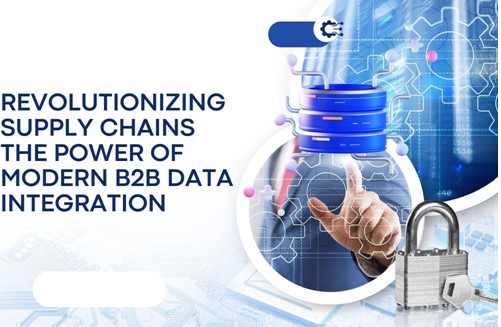In an era of rapid global commerce evolution, seamless data exchange is crucial for effective supply chain management. Pramod Kumar Muthyala, an expert in enterprise technology solutions, highlights the transformative impact of modern B2B integration in boosting business efficiency and resilience. His research delves into key innovations that are revolutionizing supply chain operations, employing advanced integration strategies to enhance collaboration, visibility, and automation. These technologies enable organizations to streamline processes, optimize workflows, and respond proactively to dynamic market demands.
The Shift Toward Seamless Data Exchange
The evolution of B2B data integration is transforming company interactions with partners. Traditional supply chains relied on manual processes, leading to inefficiencies, inaccuracies, and delays. Modern solutions remove these obstacles with automated workflows, electronic data interchange (EDI), and cloud-based connectivity. These advancements streamline transactions, enhance agility, and improve efficiency, ensuring seamless data exchange. By embracing these innovations, businesses can optimize operations, reduce errors, and respond more effectively to market dynamics.
API-First Architecture: A New Era of Interoperability
The adoption of API-first strategies has revolutionized B2B data exchange, ensuring real-time connectivity between diverse systems. By prioritizing API-driven integrations, businesses reduce data silos and enhance responsiveness. This shift enables automation of key processes like order fulfillment, invoicing, and inventory management, resulting in faster, more accurate supply chain operations. Embracing API-first integration enhances efficiency, streamlines workflows, and strengthens collaboration across supply networks, driving overall business agility and competitive advantage.
Cloud-Based Integration: Scaling Business Operations
Cloud computing has transformed B2B integration by offering scalable, flexible, and cost-effective solutions. Cloud-based platforms enable seamless collaboration among suppliers, manufacturers, and logistics providers, ensuring a unified data management approach. Organizations utilizing these solutions experience greater transaction efficiency, lower operational costs, and improved global supply chain collaboration. By embracing cloud technology, businesses enhance agility, optimize workflows, and drive innovation in their supply chain operations.
The Role of Artificial Intelligence in B2B Integration
AI is revolutionizing supply chain management by enabling predictive analytics, optimizing inventory, and automating decision-making. Machine learning enhances data validation, anomaly detection, and error prevention, reducing manual intervention and improving efficiency. AI-driven insights help businesses adapt to demand fluctuations, streamline operations, and enhance supply chain resilience. By leveraging intelligent automation, companies achieve cost savings, increased accuracy, and faster response times, driving competitive advantages in an increasingly complex marketplace.
Enhancing Supply Chain Visibility with Real-Time Insights
Modern B2B integration enhances supply chain visibility by providing real-time operational insights. Businesses can anticipate disruptions, optimize logistics, and improve customer service through robust integration frameworks. Advanced dashboards and predictive analytics enable continuous monitoring of key performance indicators, facilitating data-driven decision-making. This improved visibility helps organizations streamline operations, reduce risks, and enhance efficiency, ultimately driving better responsiveness and competitive advantages in an evolving business landscape.
Overcoming Implementation Challenges
Implementing B2B integration solutions presents both technical and organizational challenges, such as data standardization, system compatibility, and partner alignment. Successfully overcoming these obstacles requires a structured strategy that includes comprehensive planning, phased deployment, and thorough employee training. A well-executed integration approach ensures smooth adoption, reduces operational disruptions, and fosters seamless collaboration across the supply chain. By proactively addressing these challenges, businesses can enhance efficiency, streamline workflows, and improve system interoperability. Embracing a strategic B2B integration framework enables companies to unlock new opportunities, drive innovation, and maximize the full potential of digital transformation.
Future Trends: The Path Forward for B2B Integration
The future of B2B integration is set for innovation, fueled by automation, blockchain, and advanced cybersecurity. Businesses are adopting next-generation solutions to enhance transparency, security, and efficiency. As digital transformation evolves, organizations that embrace modern B2B integration will achieve a competitive advantage. Investing in these technologies ensures streamlined operations, secure transactions, and improved collaboration, positioning companies for sustained success in the rapidly changing global marketplace.
In conclusion, modern B2B integration is essential for navigating the complexities of supply chain management. By adopting API-first architectures, leveraging cloud computing, and integrating AI-driven analytics, businesses can achieve unparalleled efficiency and resilience. Pramod Kumar Muthyala’s insights emphasize the transformative role of these technologies in shaping the future of supply chain operations, enabling companies to stay agile and competitive in an increasingly digital and fast-evolving global market.



































